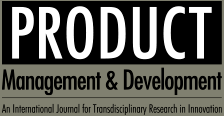Incorporating Life Cycle Cost Management in Product Development Process
Osvaldo Magno Freixo, José Carlos de Toledo
Abstract
Decisions taken during the development phase of a product affect its Life Cycle Cost as a whole, or in other words, the choice of a certain alternative project has an influence on costs of manufacturing, operation, maintenance and even of the disposal of this product. Moreover, decisions taken in the initial stage of the product development can be difficult to revert at later stages of its life cycle, or rather, such decisions can jeopardize competitiveness of the product in an irremediable way. Therefore, to adopt an alternative project or to take a decision related to a product one should have the best possible notion of the impact that such an alternative or decision will have on its Life Cycle Cost – LCC. The purpose of this article is to discuss the management of these Life Cycle Costs during the Product Development Process - PDP and to identify the minimum requirements necessary, so that such a management can be included in this process, apart from presenting a set of proposals aimed at elaborating a LCC Management Model. Initially, the importance of ‘the cost’ stands out as a competitive differential and how it is affected by the decisions made during the development of the product. Reasons are discussed considering cost management as one of the integrant aspects of models referred to regarding the development of the product and the different definitions addressing this question. An attempt is made to differentiate costing systems or methods, cost estimation models and cost management, emphasising the Quality of Information, the Processes of Management clearly established and people’s abilities as essential factors, so that the cost management concerning the life cycle of the product actually happens in an adequate and expected way.

